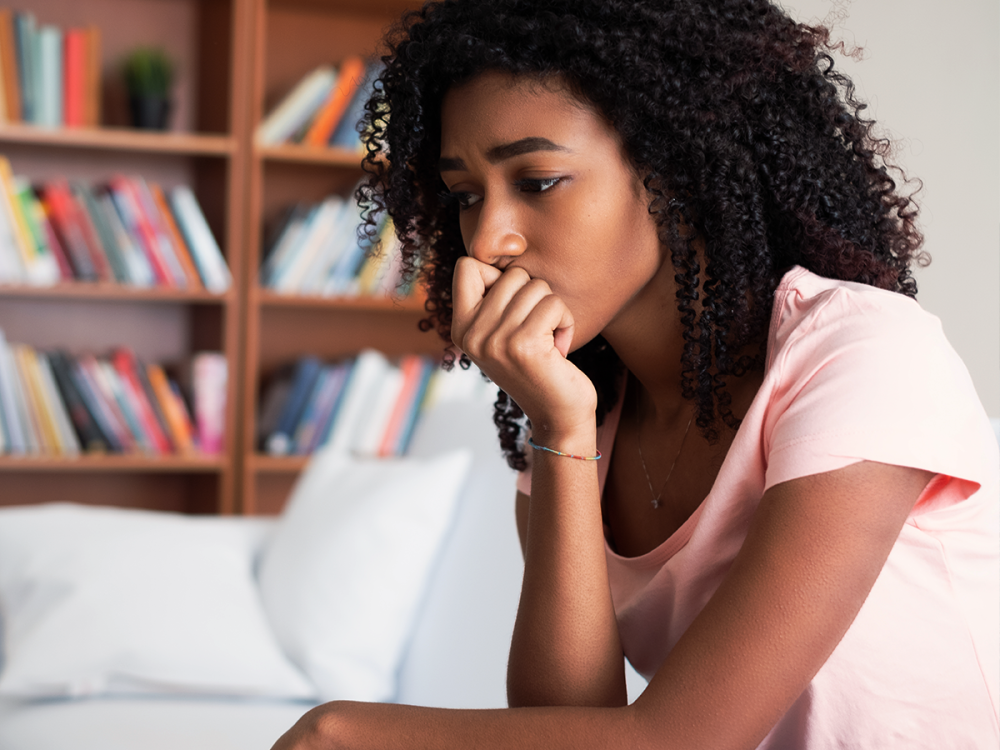
If you experience anxiety, there may be a few products or techniques that you have heard about to combat it. However, you may not know whether these things are effective. Keep reading for 6 ways to lessen anxiety, which you can try in your daily routine, to see if they make a difference for you.
What is Anxiety?
Have you ever gone to class to find out that there is a pop quiz or test that you aren’t prepared for? It may have left you sweating, nervous, and made you think you were going to fail. This is what anxiety feels like. Essentially, anxiety is a feeling you get that causes stress, could cause physical reactions and leads to you thinking thoughts that are hard to get rid of. In some cases, anxiety may leave you feeling like something is physically wrong with you, but when it passes, you should feel much better.
When a person experiences too much anxiety, this could lead to an anxiety disorder or a phobia. If you have a phobia, this means you are afraid of a thing or a situation, and you may need mental health support to lessen the effects of your phobia. Common phobias include a fear of heights, enclosed spaces, or spiders, but these are just a few examples. A person may have a phobia related to a number of different experiences, objects, or living things. For more information on phobias, check out BetterHelp. Moreover, consider trying to reduce your anxiety, so you don’t see any health effects from it.
Lessening Anxiety

Consider these tips when you are doing your best to address the level of anxiety you are experiencing.
1. Exercise
When you start exercising regularly, you may be able to work off nervous energy, so you won’t be as anxious when you need to be doing something important, like studying or sleeping. Try to exercise around 30 minutes a day for as many days a week as you can. Keep in mind that it doesn’t have to be strenuous. Anything that gets your body moving and makes you sweat counts, so you can start by walking around the block or running up flights of stairs.
2. Eat Healthy Foods

Another aspect of your life that you may need to work on is your plate. You should be eating a good mix of grains, fruits, vegetables, and protein. Do what you can to incorporate healthy foods into your meals, even if you often eat takeout. You can always add more salads, smoothies, or fresh fruit to your meals. Besides that, be sure that you are eating the proper number of calories, so you’ll know when you are getting the correct amount of food. You may need to start a food diary, so you can keep track of what you are eating and how many calories you ingest a day.
3. Get Some Sleep
It can be challenging to get the right amount of sleep, but it is important. When you are able to sleep the 8 hours you need every night, you allow your body time to shut down and regroup. You may notice that you are better able to go about your day and have less anxiety when you get the right amount of sleep. Try to go to bed at the same time every night and see if this helps you get the hours that are necessary. If you find that you are having trouble staying asleep, make sure that your room is cool and dark. This may be able to prevent you from being awakened during the night.
4. Take Some Time for Yourself

At times, you may become overwhelmed. This is something that is okay and can happen to anyone. When you are feeling this way and you are getting anxious, you need to take a moment to relax. Do something that you enjoy or just take a minute to gather your thoughts in a quiet room. It is fine to take a break if you are feeling like you will become burned out if you keep going. After you give yourself a minute to gather your thoughts, you may feel more relaxed and ready to get back to work.
5. Talk to a Loved One
If you have someone that you trust, talk to them about the things that are bothering you or causing you anxiety. For example, you can tell your best friend about the stressful week you are having, and they may be able to make you laugh. Moreover, they might lend a hand when it comes to putting situations in perspective for you, where you can feel better about your experiences. In other words, you don’t have to keep it in when you are feeling anxious, or a situation is bothering you. If you have a support system you can lean on, talk to someone that cares about you, so you can get a second opinion on an issue that is affecting you.
6. Seek Therapy

Once you don’t know where else to turn, you may want to talk to a therapist. A professional should be able to converse with you about your anxiety, offer guidance on how to lessen it, and talk to you about treatment options if this is relevant. If you are experiencing a phobia or an anxiety disorder because of your anxiety, they will be able to offer help with these conditions as well. You can choose to speak with a therapist in their office or online. If you decide you want to interact online, you won’t have to leave your house to get the support that you need.
Conclusion
No matter if you have anxiety often or infrequently, it may cause you concern when you experience it. However, there are things you can do to lessen your anxiety, and some of them may just take a bit of adjustment to your routine. Additionally, you can work with a therapist to find out even more about how to address anxiety, so it doesn’t affect all aspects of your life.








